Biotech, robotics, and fintech startups took the spotlight today at Y Combinator’s 26th Demo Day. This batch features 141 total companies from 23 countries, with presentations spread over two days. The house was packed at Mountain View’s Computer History Museum with wealthy investors forced to stand in the back or sit on the floor. Meanwhile, marijuana soda, wind turbine-cleaning drones, and indestructible panty hose startups demoed their products in the break room and parking lot.
Y Combinator has made progress ramping up diversity in its startup school. Thirty-five percent of this batch’s companies are internationally based, 27 percent have a female founder, and 13 percent have an underrepresented minority founder. The 50-person YC team now includes 18 partners, with Eric Migicovsky of Pebble joining to help out hardware companies and explore the accelerator’s opportunities in China.
The question on everyone’s minds is which startups will join the 15 previous ones like Stripe, Dropbox, and Airbnb now worth over $1 billion. But with YC’s portfolio moving beyond social apps and enterprise tools towards hard science innovation, and 18 percent of this batch’s companies coming from health and biotech, many of the software investors seemed a little overwhelmed. We’ll let you choose your favorites from our write-ups of all 64 that pitched on the record today. Check back later for TechCrunch’s picks of the top companies, and we’ll have full coverage of Demo Day 2 tomorrow.

Bear Flag Robotics
Bear Flag is building autonomous tractors. They claim to be able to reduce input by 20 percent and increase production yield by 11 percent. They’re already testing tractors in the field in California. They plan to charge about $4,000 per tractor per month.
Universe
A mobile app for building mobile websites. Who would have thought? Universe lets users build a personal portfolio site with the same ease of editing a photo on Instagram. Users can follow other sites, which creates a bit of a Tumblr-like network of personal blogs. Users have already built one hundred thousand sites with the iOS app which has expanded its functionality in recent months to let users build multi-page sites. The app currently has 2,200 paid subscribers paying an average of $3.40 per month to gain premium features on the app.
Read more about Universe on TechCrunch here.
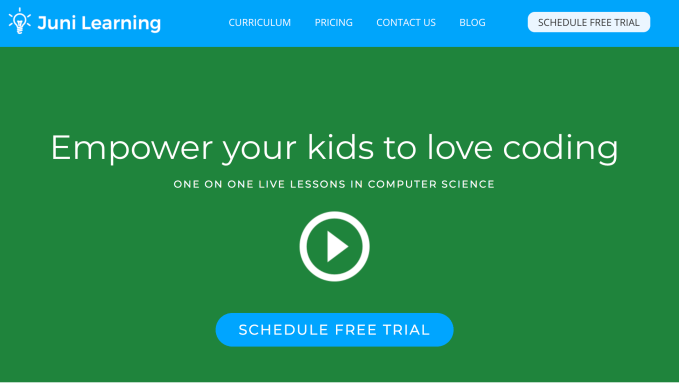
Juni Learning
Juni is an online education program for kids that is targeting the $9 billion after-school market. The idea is to start with teaching kids computer science in a virtual, one-on-one setting by pairing them with tutors. It charges $250 per month for once-a-week classes Juni says it’s grown 25 percent month over month in the last six months. The company also says it’s profitable, with a 95 percent monthly renewal rate. Without adequate computer science courses in schools, and the skills becoming clearly critical future employment, Juni could educate the next generation of programmers.
Read more about Juni on TechCrunch here.

SafetyWing
There are 25 million digital nomads who move around the world while working on the Internet, and that can make health insurance complicated. SafetyWing offers $37 per month health insurance in 180 countries ($30 extra fee in the U.S.) that covers hospital visits and prescriptions but doesn’t cover preventative treatment or pre-existing conditions like cancer. SafetyWing has partnered with insurance giant TokioMarine to administer the plans. The goal is to build a global safety net for freelancers and digital nomads that the startup hopes will include banking and income protection in the future. The startup will have to convince travelers that health insurance is worth the price and hassle, but with a $15 billion per year market and the number of digital nomads doubling every five years, there’s room for a modernized vision for health insurance.
Read more about SafetyWing on TechCrunch here.

Macromoltek
Macromoltek wants to “change the drug discovery process,” by building software that designs antibodies. The startup uses academic research combined with technology to help drug companies. So far, Macromoltek has ten paying customers, generating $50,000 in revenue for 2017. They’ve also secured $500,000 in LOIs (letter of intent) to design new antibodies.
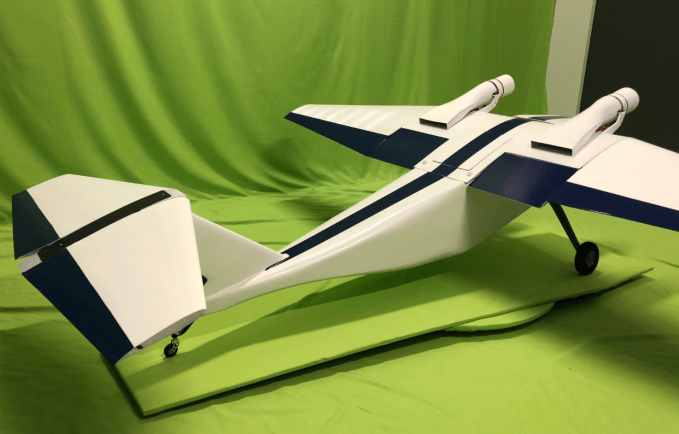
Passerine
Passerine makes unmanned aircrafts that take off and land like birds. They intend to sell it to companies to use for things like mapping large areas, light weight cargo delivery, lidar surveying, and powerline monitoring.

Visor
Visor wants to turn top gamers into even more skilled players. The startup analyzes eSports gameplay footage to help coach users on what gaming skills they need to improve on. The team analyzed 1.3 million minutes of footage in the past 30 days and they boast over 39 thousand monthly active users, growing 52 percent month-over-month since launching at the beginning of the year.
Proven
Proven uses data, artificial intelligence and machine learning to design individualized skincare products for consumers. To provide the best skin care products for people, Proven has built a database, which it calls the Beauty Genome Project, that uses 8 million reviews from people in conjunction with AI to understand what ingredients have an impact on people. The idea is to help find people the products that are best for their skin topology.
Read more about Proven on TechCrunch here.
Vena Medical
Vena Medical has created what they claim is the “world’s smallest camera” that is designed to help with medical treatments like liver cancer and strokes by looking at patient’s blood vessels. They’ve secured pilots with hospitals and believe there is a $5 billion market opportunity for their single use medical device. “Every patient treated is another camera used.”

Haiku
Haiku wants to do for apps want Unity did for games. It’s a simple app creation tool, meant for developers and designers to use together. The apps it creates are cross platform across both iOS and Android

Patchd Medical
Patchd has built a chest-worn device that detects sepsis, the No. 1 cause of death in hospital patients. The idea is that patients would no longer have to stay in the hospital for monitoring, as the device can record and analyze vital signs and send results back to doctors. They currently have a paid pilot in Australia, and are currently testing the device with 20 people. They’ll conduct a clinical trial in 2019. If the product can reliably predict sepsis, patients will be able to get back to the hospital in time if they have complications. Patchd’s device could save tons of money for hospitals and insurers while getting sick people home where they want to be.
Proof
Proof helps websites turn their visitors into purchasing customers. As an example, websites can show visitors how many people are currently viewing a product. The idea is for those notifications to help convert people into buyers. Proof currently has 2,700 paying customers, who see an average 10 to 15 percent lift in conversions. Proof’s long-term goal is to personalize the entire marketing funnel.

Openland
Openland wants to create a better way for real estate developers to acquire properties. It does this through a slick interface that allows builders to sort through available lands and connect quickly with landowners, evaluate the properties and get through the paperwork. Openland’s co-founder called the fact that 90% of buildable space isn’t for sale the “biggest roadblock for the real estate industry.”
SharpestMinds
The biggest tech companies in the U.S. — the so-called FAANGs, or Facebook, Apple, Amazon, Netflix and Google — have massive recruiting efforts on university campuses and around the world. But SharpestMinds wants to build a set of tools to help the rest of those tech companies that don’t have those recruiting resources find talent before they get snatched up. SharpestMinds matches up students that apply on their site with companies where they can work on a trial basis, building up that early relationship that could lead to a job down the line.
Read more about SharpestMinds on TechCrunch here.
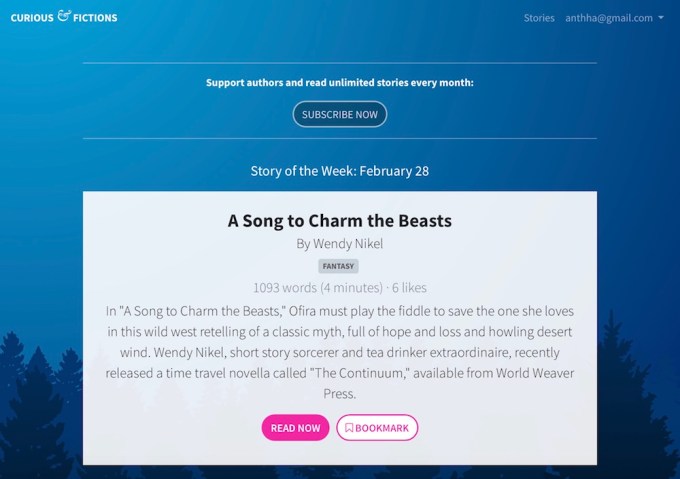
Curious Fictions
Curious Fictions is an mobile-friendly site where readers can find, read and pay for short stories. You can pay $5, $10 or $15 per month, and then the money is distributed to the authors of the stories that they liked that month. You can also tip authors for individual stories.
Read more about CuriousFictions on TechCrunch here.
Culture Robotics
Culture Robotics is growing organisms for biotech companies. It claims to have built “the first cloud bioreactor farm” and compare themselves to Amazon Web Services, but for biomanufacturing. Its technology creates bacteria like collagen for beauty companies. Culture Robotics believes its applicable for synthetic biology, microbiome and cellular therapy. So far, they’ve secured three paying customers and are generating $50k in revenue per month.

Qulture.Rocks
Qulture.Rocks is HR management for Latin America. They’re have grown about 20% month over month for the past 2 years, and have hit the break-even point.

AesculaTech
A bio-tech startup that aims to create a more patient-friendly way to deliver drugs. AesculaTech has invented a temperature responsive material that enables the company to make customized medical devices inside the body. The company’s first use of its technology is going toward the treatment of dry eye syndrome, which the founders say affects more than 20 million people in America. The goal is to become the go-to material used to make medical devices.
Read more about AesculaTech on TechCrunch here.
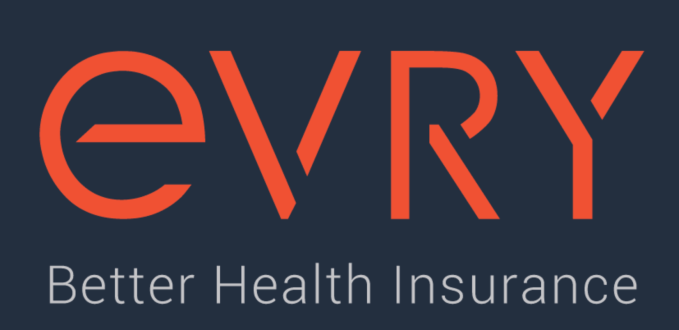
Evry Health
Evry Health wants to take on the employee health insurance market by tackling a specific type of customer. The startup is specializing in working with customer companies that have between 200-1,000 employees. They boast that their product is 20 percent less than competitors and offers enhanced coverage. They’re tackling the $10B Texas health care market when they launch at the beginning of next year.
Aspire
Aspire provides loans to small businesses in Southeast Asia. Its team of “credit experts” promise to make a decision within two hours and have cash disbursed by the next day. So far, they’ve secured $500k in loans in just eight weeks. They support banks like Citi, Maybank and HSBC.

Sudden Coffee
Sudden makes instant coffee that the company claims is “better than fresh Starbucks” – backing it up with what they say was a blind test in which 8 of 10 coffee drinkers chose their instant stuff. They’re currently in 20 retail stores, and will soon be sold in REI. Their secret sauce, as they explain it: they’ve found a way to make instant coffee without requiring any boiling.
![]()
CoinTracker
CoinTracker is a platform to track your crypto across all exchanges, wallets, and even currencies. Today most crypto-enthusiasts try to do this using complicated and bloated Google spreadsheets, so an automated solution has the potential to save a lot of people a lot of time. CoinTracker also has the ability to optimize tax filings by computing capital gains reports using FIFO, LIFO or HIFO accounting.
Read more about CoinTracker on TechCrunch here.

Supermedium
Supermedium is a web browser built natively for virtual reality. The team behind the browser was previously working at Mozilla working on A-Frame defining the WebVR standard which aims to get apps and games off your hard drive and onto the world wide web. Supermedium is working with developers to make their browser the default hub for quick and impactful games and demos. A beta of the app is available now on the Oculus Rift and HTC Vive VR headsets.
Read more about Supermedium on TechCrunch here.

Sheerly Genius
Sheerly Genius manufactures and sells rip-proof, snag-proof and “lifeproof” pantyhose that last up to 50 wears. The pantyhose are made with the same type of fiber found in bulletproof vests and climbing equipment. Right now, Sheerly Genius sells basic black, sheer pantyhose. Down the road, Sheerly Genius plans to move into the “nude” option, which entails a number of different colors.
Read more about Sheerly Genius on TechCrunch here.

Hexel
Hexel lets any web community launch its own immediately-usable cryptocurrency. The idea is that sites could reward their own users for engagement or let them buy tokens for different purposes, but that they could also trade them for other sites’ currencies on the Hexel exchange. For example, Quora could reward you tokens for having the top answer to science questions. Those could potentially be used to promote your own answers or questions, or you could trade them in via Hexel for hypothetical Reddit tokens that would let that user post on science subreddits reserved for experts. Hexel will earn a fee when use use its exchange. While 300 currencies have been created since Hexel’s launch six weeks ago, the startup will have a tough time persuade popular web platforms to complicate themselves with tokens. Most people still only understand cryptocurrencies as stores of value like Bitcoin, so lots of user education would be required too.
Read more about Hexel on TechCrunch here.

Modern Health
A mental health benefit platform for employers and their employees. Modern Health connects employees to a healthcare professional or digital tools to address things like depression, anxiety
Since launching four weeks ago, Modern Health has posted $37,000 in annual recurring revenue. So far, employee engagement comes in at 30 percent.
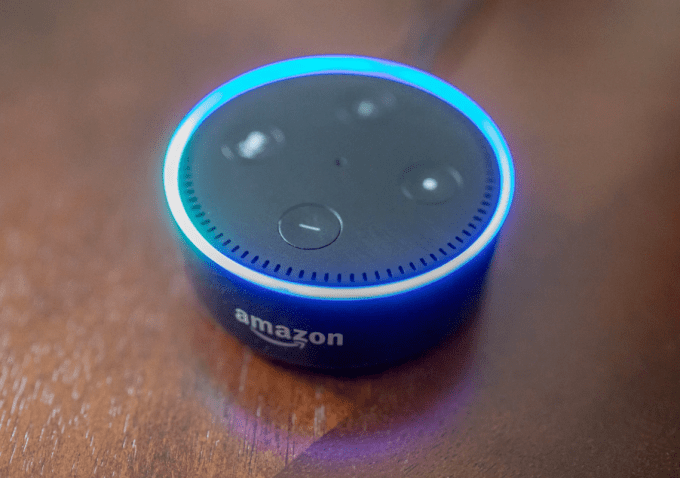
Volley
One in five American households now have a new family member in the house named Alexa, Siri or Google. Volley wants to build a platform for voice-based gaming on home assistant hardware. The company has the number one game for Alexa and has 900k MAUs since they launched last April.
Read more about Volley on TechCrunch here.
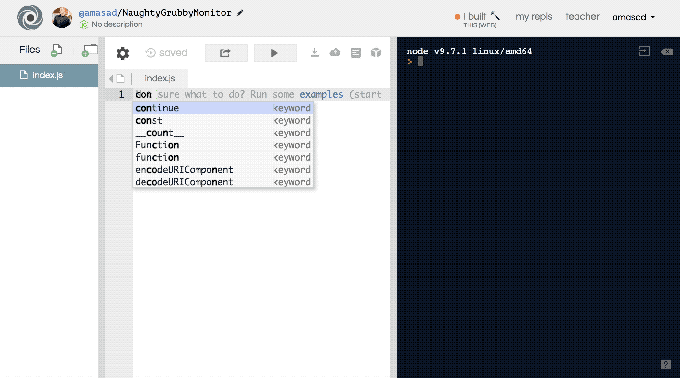
Repl.it
Repl.it is an instant serverless computing platform. It lets you write and deploy apps for your browser. They claim to be the “easiest way to start coding,” letting users build “complex applications with thousands of lines of codes.” Repl.it believes its cloud platform is perfect for building games and other interac
source https://techcrunch.com/2018/03/19/here-are-64-startups-that-launched-today-at-y-combinators-w18-demo-day/



No comments:
Post a Comment